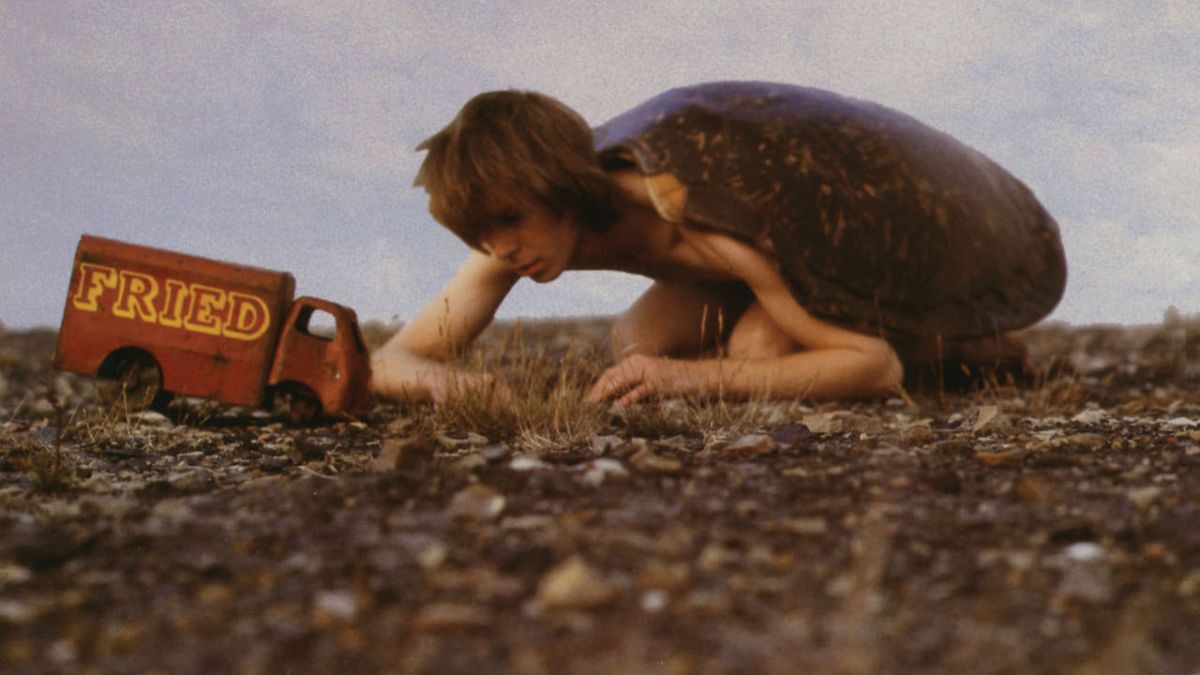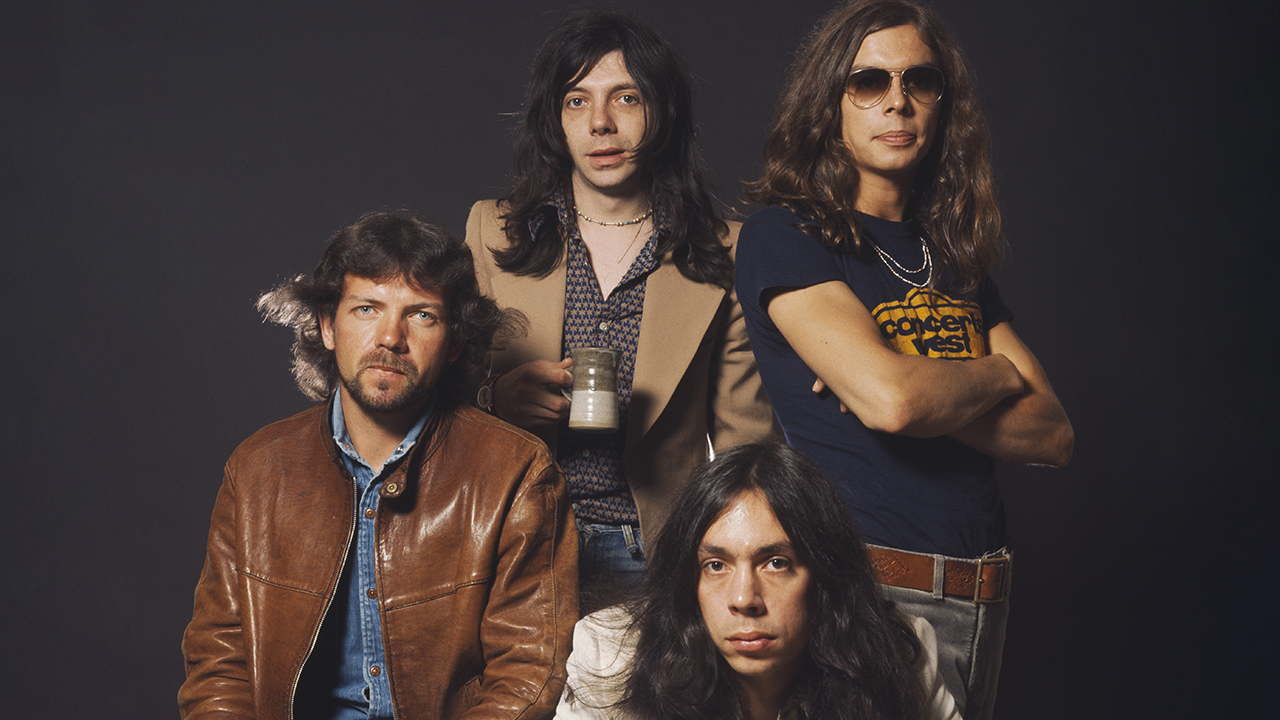Why you should definitely own Fried by Julian Cope
Julian Cope's Fried is neo-psychedelic indie-prog of a completely unique hue, shot through with brains, wit and a little pop suss

Question: How do you get a picture of a naked guy under a turtle shell on the front of a major label album in 1984?
Answer: through lies, sneakiness and a wilful and sassy conspirator in the heart of that record company.’
So wrote Julian Cope in Repossessed, the second volume of his memoirs. And it’s difficult to imagine his career without the picture of his beshelled body staring at a toy truck adorned with the album’s title.
It so perfectly summarises the way he was perceived at the time; the former Teardrop Explodes frontman was constantly being compared to Syd Barrett, and there were certainly similarities: Cope was another wild-haired, acid-drenched purveyor of childlike ditties alternated with mind-blowingly sophisticated work, who had apparently blown his mind – not to mention his career – through the 24/7 use of LSD. Not bad for an uptight punk rocker who’d once believed that even spliffs were only for the Grateful Dead.
But ‘Fried’ proved that, unlike Barrett, Cope was still very much functioning, although the spectre of the crazy diamond permeates much of Fried stylistically. Indeed, it was recorded in Syd territory at Cambridge’s Spaceward studios. And, perhaps inevitably, a moderate level of craziness attended the album’s recording, probably to its creative benefit. This included producer/guitarist Steve Lovell’s insistence on placing a picture of Beach Boys genius Brian Wilson in a frame above the mixing desk and regularly consulting the image on the progress of the album.
Horrified by the novelty pop acts of the early 80s, Cope had determined he would instead write ‘traditional’ songs. To him, this meant creating opener Reynard The Fox from a patchwork of deliberate borrowings: the medieval Reynard legend; an 18th-century poem entitled The Fox, by Thomas Grey; a chorus including the descending chords from the end of Black Sabbath’s title song; the super-dumb riff from Them’s I Can Only Give You Everything. The result is a guitar wigout classic that would form the centrepiece of Cope’s live act for at least the rest of the 80s.
Elsewhere, Bill Drummond Said (directed at the former Teardrops manager and future KLF man) is bubblegum pop decorated with backwards guitars; the stomping Sunspots finds Cope accompanied by a comically parping tuba; the ridiculously catchy Holy Love is given a regal feel by some tasteful cor anglais playing. Laughing Boy has gentle acoustic atmospherics and features the childlike fantasy fib that "the king and queen have offered me the estate of Robert Peel", imagery that could have come straight off Floyd/Barrett’s Piper At The Gates Of Dawn. (Bizarrely, Cope later discovered that the house he was trying to buy had belonged to the same 19th-century politician.)
Sign up below to get the latest from Classic Rock, plus exclusive special offers, direct to your inbox!
It’s all sung in Cope’s then-trademark fulsome tones – the record was before his fascination with snarled Iggy Pop/Jim Morrison delivery. The burnt-out Barrett of Jugband Blues echoes throughout the closing Torpedo, which, despite the dynamism suggested in the title, finds Cope accompanied by only desultory church organ.
Released into the pop climate of ’84 alongside the likes of Howard Jones and Blancmange, the album was a resounding flop. As Cope settled into his new home at the end of 1984, he still felt the album’s failure keenly. "As a symbolic gesture," he wrote, "I left the Fried truck in the middle of our back garden. When visitors looked out of our bay windows, their first sight was always of the rusting Fried truck in its overground grave."
